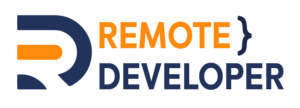Technology is changing quickly and Australian businesses need the right skills to keep up and grow. Having the right tech abilities helps teams work smarter, solve problems faster, and stay reliable. For both employers and developers, understanding what skills are most needed can make a big difference. Knowing what to focus on means better chances to succeed and grow in a fast-moving industry.
This blog explores the most important tech skills that are helping Australian companies stay competitive and innovative. Whether you are hiring or building your own career, knowing which skills matter is key. The right skills help businesses meet new challenges and adapt to change. Keep reading to find out what skills are in demand and how they can shape the future of work in Australia.
In-Demand Tech Skills Driving Innovation in Australia
As technology evolves, so do the skills needed to stay ahead. Here are the top tech capabilities that are helping Australian businesses grow, adapt, and lead in their industries.

1. Artificial Intelligence & Machine Learning
AI is reshaping industries like finance, health and e‑commerce. Employers look for developers who can build models and apply them to real-world problems. Skills like Python, TensorFlow and prompt engineering are in demand. Knowing how to use AI responsibly is a big advantage.
2. Cloud Computing & DevOps
Many companies now use cloud platforms and automated tools to build and manage apps. Skills in Kubernetes, Docker and CI/CD help speed up delivery and improve stability. DevOps engineers make systems run more smoothly. Cloud and automation lead to better results.
3. Cybersecurity & DevSecOps
Keeping data and systems secure is more important than ever. Developers who understand secure coding and tools like threat scanning are highly valued. Adding security early in the process saves time and builds trust. Secure code protects both users and businesses.
4. Full‑Stack Software Development
Full-stack developers can work on both the front and back ends of an app. Knowing frameworks like React or Vue and back-end tools like Node.js or Django is a big plus. These developers help teams move faster and stay flexible. Their skills are great for smaller or remote teams.
5. Data Engineering & Analytics
Companies need people who can work with data to find useful insights. Knowing SQL, ETL tools and BI platforms like Power BI helps turn data into smart decisions. Demand is growing in areas like finance, health and online shopping. Data experts help businesses grow and improve.
Why These Skills Matter for Australian Businesses
Tech skills aren’t just for big companies anymore. More Aussie businesses now rely on them to stay efficient, competitive, and ready for what’s next.

1. Bridging the Digital Gap
Australia continues to experience a shortfall of qualified tech professionals across industries. This talent gap affects productivity and limits innovation, particularly for small and mid-sized businesses. Investing in AI, cloud, and security skills can help companies build stronger internal teams. Upskilling the workforce now means fewer disruptions and more long-term stability.
2. Driving Industry Transformation
Digital change is reshaping sectors like banking, healthcare, education, and mining. These industries are adopting new technologies to streamline operations and improve customer experiences. Full-stack, DevOps, and data skills are crucial for building scalable solutions that keep up with market shifts. Skilled developers are no longer a nice-to-have but a business necessity.
3. Supporting Ecosystem Growth
Australia is positioning itself as a leader in AI and digital exports. Cloud-native applications, secure infrastructure, and scalable data platforms are now key growth drivers. Developers with these technical capabilities directly support the national goal of building a digital economy. Their work helps attract international partnerships and tech investment.
4. Enabling Remote Collaboration
More Australian companies are embracing hybrid or remote-first models to stay competitive. Developers who can work independently, document clearly, and collaborate across time zones are highly valued. Cloud platforms and DevOps practices are essential for maintaining productivity in distributed teams. These skills promote flexibility without compromising quality.
5. Mitigating Risk & Compliance
Cybersecurity threats continue to rise alongside new compliance standards. Companies need developers who prioritise security at every stage of development. DevSecOps knowledge ensures code is safe, reliable, and meets regulatory expectations. This proactive approach builds trust with clients and reduces the risk of costly breaches.
Tech Skills & Client Expectations
| Core Skill Area | What Clients Want to See in Developers |
| AI & ML | Model deployment, chatbots, predictive analytics |
| Cloud & DevOps | CI/CD pipelines, containerised infrastructure |
| Cybersecurity & DevSecOps | Secure coding history, compliance experience |
| Full‑Stack Development | End‑to‑end apps with clean documentation |
| Data Engineering & Analytics | Live dashboards, ETL pipelines, SQL or Python work |
How Remote Developers Can Prepare
Remote developers need to show they can work well on their own and deliver results. Building the right skills and experience helps employers trust they’ll get the job done.

1. Get Certified in Cloud Platforms
Earning credentials like AWS, Azure or GCP certification validates your cloud proficiency. These certifications enhance credibility and show readiness to manage real infrastructure. Employers often prioritise certified professionals for remote roles.
2. Build Real Projects
Create full-stack applications or data pipelines using React, Node.js, Python or ETL tools. Host these projects on GitHub or cloud environments to demonstrate end-to-end competence. Showcaseability is key for remote hiring.
3. Focus on Secure Development
Practice writing secure code, conducting threat assessments and using DevSecOps tools. Share examples in project write-ups or code reviews. This reassures employers you prioritize security in development.
4. Learn AI/ML Fundamentals
Explore machine learning frameworks, work on model building and prompt engineering. Understand explainable AI and ethical considerations. Even basic ML projects boost your profile in Australia’s tech landscape.
5. Sharpen Soft Skills & Collaboration
Remote work demands strong communication, async collaboration and clear documentation. Practice working with tools like Slack, GitHub issues, project boards and wikis. These behaviours help you integrate smoothly into distributed teams.
Final Thoughts
Australia’s tech sector is evolving rapidly and firms are in urgent need of talent with skills in AI, cloud, security, full-stack development and data analytics. Remote developers who master these areas give themselves a powerful advantage in the market. By combining technical expertise with secure practices and collaborative discipline, professionals can thrive in remote roles and support Australia’s digital growth.
Upskilling in these domains not only opens doors to competitive roles but also builds career resilience in a shifting landscape. With targeted learning, real-world portfolio work and online certifications, developers can become trusted partners to Australian clients. The best tech skills align technical delivery with strategy, trust and impact. Staying current is not optional—it is central to growth.
Ready to future-proof your business with the right tech skills? Contact us today to access trusted experts who deliver real results and keep your business ahead.

